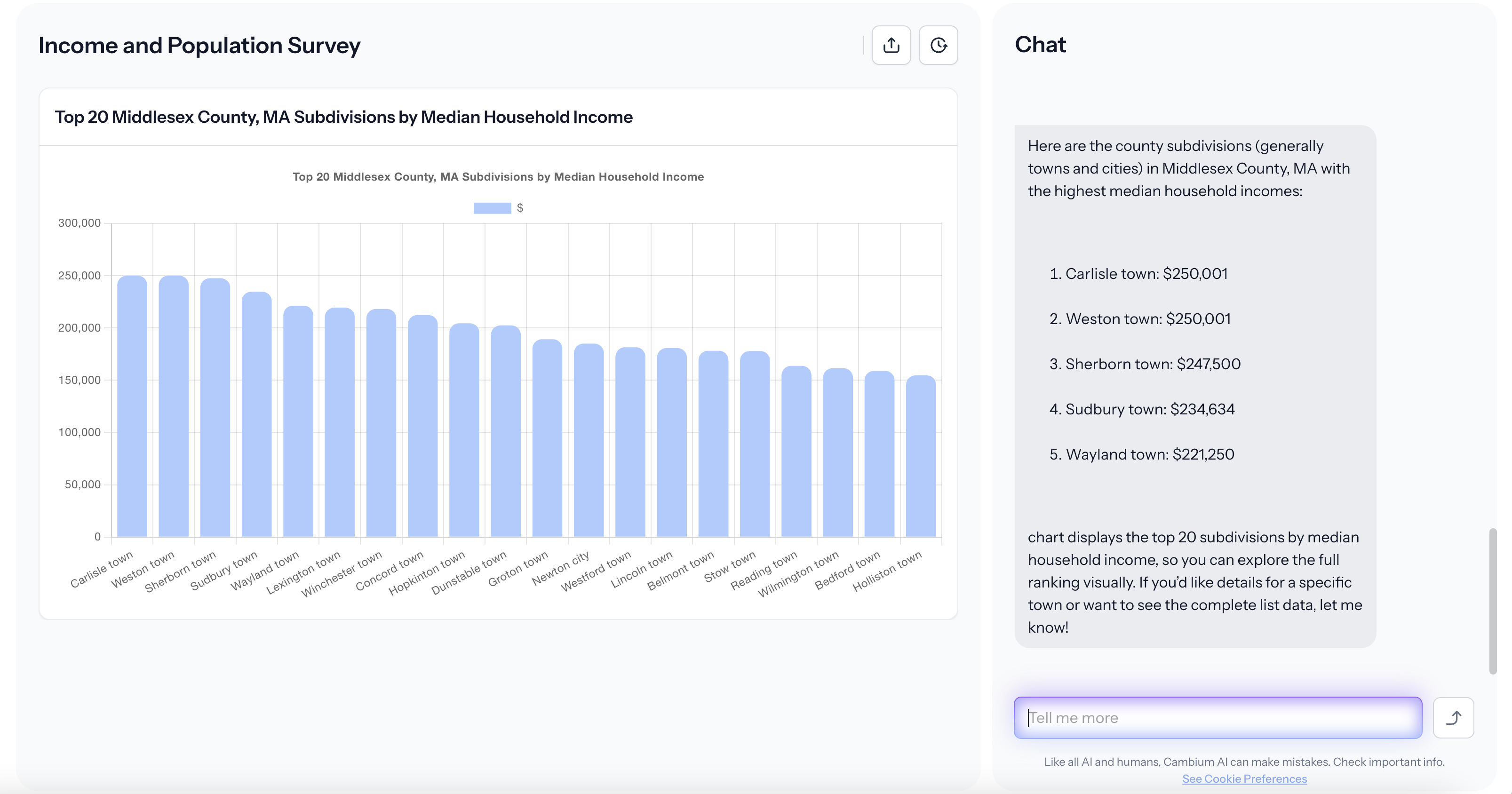How to Do Market Research For a Business Idea
You have an idea. It’s a spark, a solution, a new way of doing things that you’re passionate about. For entrepreneurs, solo founders, and small business owners, this is the thrilling first step on a long journey.
But what comes next?
How do you know if your brilliant idea has the potential to become a thriving business?
The answer lies in market research.
Market research is the process of gathering and analyzing information about your target market, including their needs, preferences, and behaviors. It’s about replacing assumptions with data, and it’s the single most important thing you can do to de-risk your business idea.
But for many, the term "market research" conjures images of expensive consultants, time-consuming surveys, and impenetrable spreadsheets. The good news is that the landscape is changing. Thanks to powerful new tools, deep market insights are more accessible than ever before. In this guide, we’ll explore how to conduct effective market research for your business idea, with a special focus on a groundbreaking new approach that leverages public data and conversational AI.
Why Market Research is Non-Negotiable
Before we dive into the "how," let's solidify the "why."
Effective market research helps you to:
-
Validate Demand: Is there a real need for your product or service? Are people willing to pay for it?
-
Understand Your Customer: Who are they? What are their pain points? Where do they hang out online and offline?
-
Identify Your Niche: Who are your competitors? What do they do well? Where are the gaps in the market that your business can fill?
-
Refine Your Product or Service: How can you tailor your offering to meet the specific needs of your target audience?
-
Develop a Go-to-Market Strategy: How will you reach your customers? What marketing channels will be most effective?
In short, market research provides the foundation for all of your business decisions, from product development and pricing to marketing and sales.
The Old Way vs. The New Way
Traditionally, market research has relied on a handful of methods:
-
Surveys: Asking a large number of people a set of standardized questions.
-
Interviews: Conducting in-depth, one-on-one conversations with potential customers.
-
Focus Groups: Facilitating a discussion with a small group of people to gather their feedback and opinions.
-
Observational Research: Watching how people behave in a particular setting.
While these methods can be valuable, they also have their drawbacks. They can be expensive to implement, time-consuming to conduct, and may not always provide a representative sample of your target market.
But what if you could access a vast trove of reliable data about your potential customers without having to spend a fortune or wait for weeks? This is where public data comes in.
The Untapped Goldmine of Public Data
Public data is information that is collected and made available by government agencies and other organizations. In the United States, this includes massive datasets like the U.S. Census and the American Community Survey (ACS). These resources contain a wealth of information about the population, including:
-
Demographics: Age, gender, race, ethnicity, household size, etc.
-
Economic Indicators: Income, employment status, occupation, etc.
-
Housing Trends: Homeownership rates, property values, etc.
-
Social Characteristics: Educational attainment, marital status, etc.
For a business owner, this data is a goldmine. It can help you to size your market, identify trends, and understand the characteristics of your target audience in granular detail.
The problem? Historically, accessing and analyzing this data has been a nightmare. It often involves navigating clunky government websites, downloading massive CSV files, and using complex statistical software. For the average entrepreneur, it’s simply not feasible.
A New Era of Market Research: Introducing Cambium AI
This is where a new wave of AI-powered tools is changing the game. One of the most exciting new platforms in this space is Cambium AI.
Cambium AI is a no-code platform that allows you to query and visualize public data using natural language. In other words, you can ask it questions in plain English, and it will give you back easy-to-understand charts, maps, and tables. No coding, no spreadsheets, no data science degree required.
So, how does it work? Think of Cambium AI as your personal data research assistant. It uses conversational AI to understand your market research questions in plain English. You simply ask what you want to know, and the platform does the heavy lifting of finding and analyzing the right information from credible public data sources like the U.S. Census and ACS. It then delivers the insights back to you in simple, visual formats like charts and interactive maps.
A Practical Example: Researching a Fictional Business Idea
Let's imagine you have an idea for a new business: a high-end, indoor cycling studio that caters to busy professionals. You've secured initial funding, but the crucial question remains: where should you open your first location to maximize your chances of success? You're based in Massachusetts and are considering the greater Boston area. You turn to Cambium AI for help.
Step 1: Identify High-Potential Counties
Your ideal customer is a young professional with a high disposable income. First, you want to get a lay of the land at the county level to see which broad areas are most promising. You can ask Cambium AI questions like:
-
"Compare median household income and the population aged 25-44 in Middlesex County, Suffolk County, and Norfolk County, Massachusetts."
-
"Which counties in Massachusetts have the highest percentage of the population with a Bachelor's degree or higher?"
Let's say the results show that Middlesex County has a fantastic combination of high income, a large population in your target age range, and high educational attainment. You've now narrowed your focus from the entire state to a single, promising county.

Step 2: Pinpoint Promising County Subdivisions
Now that you've identified Middlesex County, you can drill down to the next level of geographic detail: county subdivisions. In Massachusetts, these correspond to cities and towns. You want to find the specific communities within Middlesex County that are the best fit. You might ask:
-
"Which county subdivisions in Middlesex County, MA have the highest median household income?"
-
"Show me a map of county subdivisions in Middlesex County with a high concentration of residents in 'Management, business, science, and arts occupations'."

Step 3: Dive Deeper into Your Target Communities
You now have a shortlist of a few specific towns. It's time to get a more detailed, comparative understanding of the people who live there to see which one offers the perfect micro-environment for your studio. You can ask Cambium AI for side-by-side comparisons:
-
"Compare the population density and average commute time to work for residents of Newton, MA, and Cambridge, MA."
-
"What is the population of people aged 30-39 in Lexington, MA, versus Newton, MA?"
-
"Show me the breakdown of household types in Cambridge, MA. What percentage are non-family households?"

This information helps you build a detailed persona for each community. A long average commute time might suggest high demand for evening and weekend classes. A high percentage of non-family households could indicate more residents with flexible schedules and disposable income for boutique fitness.
Step 4: Validate and Refine
Armed with this incredibly specific, data-backed insight, you've moved from a vague idea of "the Boston area" to a data-supported shortlist of two or three ideal towns. You can now visit these specific communities with confidence. Your subsequent research is now hyper-focused and far more efficient.
The Benefits for the Modern Entrepreneur
The advantages of using a tool like Cambium AI are clear:
-
Speed: Get answers to your market research questions in minutes, not weeks or months.
-
Cost-Effectiveness: Access powerful data and insights without the high cost of traditional market research.
-
Accessibility: No need for technical skills or a data science background. If you can ask a question, you can use Cambium AI.
-
Data-Driven Decisions: Base your business strategy on real data, not guesswork.
-
Competitive Advantage: Gain a deeper understanding of the market than your competitors.
The Future is Conversational
The rise of conversational AI is one of the most exciting developments in technology today. For marketers, solo founders, and entrepreneurs, it has the potential to be a great equalizer, democratizing access to the kind of data and insights that were once only available to large corporations.
Cambium AI is at the forefront of this revolution, transforming market research from a complex and time-consuming process into a simple, intuitive conversation.
Launching a new business is a leap of faith. But it doesn’t have to be a blind one. The answers to your most pressing business questions are out there. Now, you have a way to ask.
.png)
.png)
